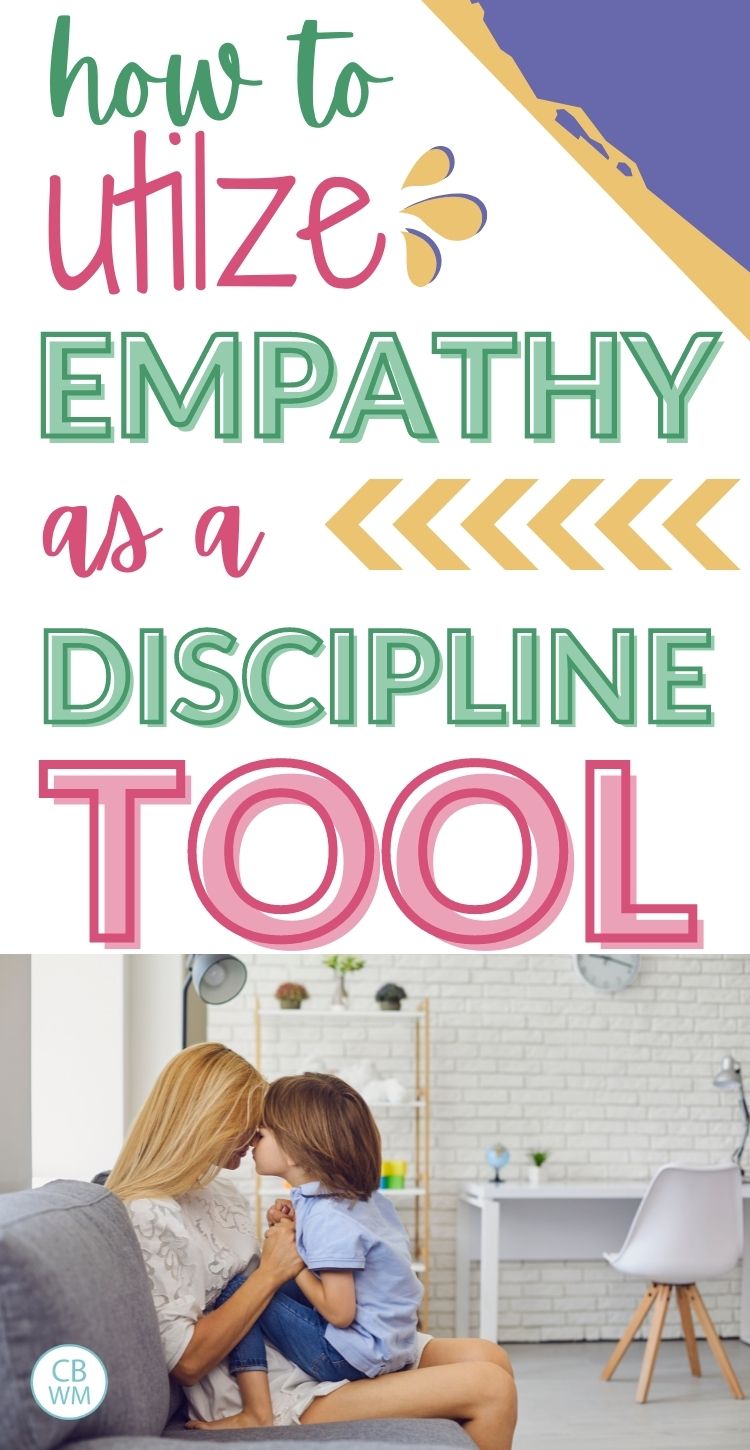How empathy is actually a very powerful parenting tool. Learn how to add this into your discipline methods for amazing results.

Let’s take a moment to imagine something.
Imagine you are a child–let’s say four years old. You just got a soccer ball for your birthday. Your mom explained very plainly that you were not allowed to play with the ball in the house.
Temptation gets the better of you and you eventually start to play with it. Play gets more and more intense until you eventually hit a picture on the wall that comes falling down–breaking the frame.
Imagine how you feel right now.
Mom comes in the room and instantly sees what happened. Mom can respond in many ways, but let’s say mom is very consistent with her rules and you know she will follow through with her warning about what would happen if you disobeyed the rule to not play in the house.
Considering Mom will follow through, there are basically a couple of ways she could go about it.
Scenario One
Mom’s voice raises and she says something to the effect of:
“Oh my goodness! Billy! Why did you do that!! Do you see what happens when you don’t follow the rules? Now my frame is broken! I can’t believe you just didn’t listen. I hope this teaches you to listen to me in the future. Give me your ball. You aren’t getting this thing back mister.”
Mom is frustrated, and she shows it. She provides some lecture for you so she can make sure you know you just messed up big time.
Imagine it.
Now imagine how you feel. How do you feel toward Mom? How do you feel about losing your ball?
Scenario Two
Mom speaks. She is firm, but does not raise her voice.
“Oh dear! Looks like you decided to play with the ball in the house. That is too bad. You remember the rule right? If you play with the ball in the house, you lose it? That is too bad. I know you were looking forward to playing with that ball outside this afternoon.”
Mom is firm and sticks to her rules, but she shows you empathy. Maybe she even gives you a hug.
Imagine it.
Now imagine how you feel. How do you feel toward Mom? How do you feel about losing your ball?
Application
I hope you were able to feel how children tend to feel in these two scenarios.
In a situation like scenario one, the child often turns his disappointment and shame over what he has done and what that means into anger toward the parent.
Instead of accepting that the situation was caused by him and is his fault, he feels anger toward the parent and blames the parent for losing his ball.
In a situation like scenario two, however, the child understands he brought this on himself. He just made a mistake. He knows mom feels sad for him–he isn’t angry at her for his choices. She isn’t rubbing it in.
The consequence in each scenario was the same. The actions that led to each scenario were the same.
The difference was the attitude of mom when she responded.
Your Response is Powerful
This is why your response when your child does something he or she should not do is incredibly powerful.
Your response can make the difference in whether or not your child accepts personal responsibility.
The disappointment over the situation remains on the child’s actions rather than transferring to the angry adult.
Whether you are an adult or a child, you will appreciate your mistakes being met with empathy rather than anger.
A child is small and is often scared when he or she messes up. Children want to please and when they do something that will disappoint mom or dad, it makes them sad.
They are also sad to receive consequences. The love you can show them helps them see mom and dad will be there and love them even when they mess up.
Love and Logic Magic
This principle is discussed in Love and Logic Magic for Early Childhood right around page 15/16. Here are some tips I wrote down from the pages on this topic:
- Share empathy before delivering consequences
- Be strict and loving
- Allow mistakes and allow child to learn from them (this means you don’t take back your previously laid out consequence just because your child is sad)
- Don’t respond in anger, frustration, or lectures
- Deliver consequences with empathy instead of anger. You share the same message but put empathy in place of the anger
My Experience
I tend to respond with empathy rather than anger. I read Parenting with Love and Logic when Brayden was just about to turn two, and this is a principle that rang very true with me.
I have seen this to be true. I haven’t always been perfect at the empathy (like, for some reason when a child spills milk at every meal because she is goofing around makes it hard for me to show empathy).
So I know that the empathy path is much more effective than the frustration path.
I encourage you to try it and see what kind of difference it makes. If this is a principle you have tried, how do you like it?
Related Posts
- 10 Guidelines for Using Logical Consequences
- Allow Your Child to Surrender with Dignity
- Love and Logic Magic: Allow For Mistakes
- Why You Need to Share Control with Your Child

